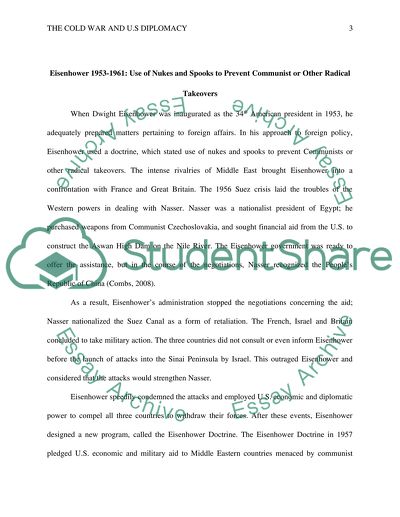The Cold War and U.S. Diplomacy: Presidential Doctrines Term Paper. Retrieved from https://studentshare.org/history/1450263-the-cold-war-and-us-diplomacy-presidential
The Cold War and U.S. Diplomacy: Presidential Doctrines Term Paper. https://studentshare.org/history/1450263-the-cold-war-and-us-diplomacy-presidential.


